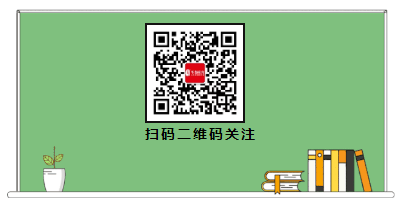A popular Chinese lifestyle platform has banned wealth-bragging behavior on its site in the latest move to heed the national call to offer healthy online content and better regulate cyberspace.
中国一个受欢迎的生活方式平台(小红书)禁止用户在平台炫耀财富的行为,这是响应国家号召提供健康的网络内容和更好地监管网络空间的最新举措。
Operators of the Instagram-like Xiaohongshu announced Thursday that they had so far flagged over 8,700 posts and “punished” 240 accounts deemed as having overtly showed off wealth between May to October. The platform, however, didn’t specify the actions taken against such accounts but added that it had improved its artificial intelligence-powered algorithms to recognize wealth-bragging content more accurately.
小红书(类似Instagram)运营商周四宣布,他们迄今已标记了8700多个帖子,并“惩罚”了240个被认为在5月至10月期间公开炫耀财富的账户。然而,该平台没有具体说明针对此类账户采取的行动,但补充说,它已经改进了其人工智能驱动的算法,以更准确地识别炫富的内容。
“The platform will firmly combat such content, which is detrimental to user experience and breeds an unhealthy ethos,” an unnamed representative from Xiaohongshu said in the press release.
“平台将坚决打击这种有损用户体验、滋生不正之风的内容,”小红书一位未透露姓名的代表在新闻稿中表示。
-
本段语言知识点积累
According to Xiaohongshu’s updated community guidelines that went into effect in April, users are asked to “avoid showing off consumption power far exceeding that of average people.”
根据今年4月生效的小红书最新社区指南,用户被要求“避免炫耀其远远超过普通人的消费能力。”
Founded in 2013, Xiaohongshu attracts about 160 million monthly active users, mostly women, who share lifestyle content largely encompassing makeup, skincare, and fashion tips through livestreaming, short videos, photos, and posts
小红书成立于2013年,每月吸引约1.6亿活跃用户,其中大多数是女性,她们通过直播、短视频、照片和帖子分享生活方式内容,主要包括化妆、护肤和时尚技巧。
The social media app has long been associated with content that exaggerates reality, and was slammed last month after several users were found to have posted overly-filtered photos or misleading representations of scenic spots. Xiaohongshu later apologized, saying it advocates “sincere sharing,” urging users to avoid excessive embellishments in their posts.
这个社交媒体app长期以来一直与夸大现实的内容联系在一起,上个月,在发现几个用户发布了过度美化的照片或对景点的误导性描述后,它遭到了猛烈抨击。小红书随后道歉,称其提倡“真诚分享”,敦促用户避免在帖子中过度美化。
The lifestyle platform’s latest move aligns with the campaign initiated by the country’s top cyberspace regulator in May, urging social media platforms to prevent bragging about wealth, extravagance, and hedonism that could harm the development of minors.
该生活方式平台的最新举措与中国最高网络空间监管机构今年5月发起的运动相一致,该运动敦促社交媒体平台防止吹嘘财富、奢侈和享乐主义,这些都可能损害未成年人的发展。
-
本段语言知识点积累
extravagance /ɪk'strævəɡəns/ n. 奢侈;铺张;浪费;Extravagance is the spending of more money than is reasonable or than you can afford.
也可以直接表示· 奢侈品:· something that you buy although it costs a lot of money, perhaps more than you can afford or than is necessary,比如说:Going to the theatre is our only extravagance. 去剧院看戏是我们唯一的奢侈享受。
它的形容词形式为extravagant
hedonism /'hiːd(ə)nɪz(ə)m/ 享乐主义;Hedonism is the belief that gaining pleasure is the most important thing in life.
【词根词缀】-ism 通常表示· 主义;学说;体系;制度:used to refer to a set of ideas or system of beliefs or behaviour,比如:You're always talking in isms—sexism, ageism, racism. 你张口闭口就是各种主义 —— 性别主义、年龄歧视、种族主义。
【熟词僻义】minor·未成年人:a person who is under the age at which you legally become an adult and are responsible for your actions
“Is the content conducive to inspiring people to live in a positive and healthy manner and strive for a better life? Or is it catering to some vulgar urge, triggering people to despise the poor and curry favor with the rich, pursue hedonism, or even the want to be paid for nothing?” Zhang Yongjun, a senior official at China’s Cyberspace Administration, said during a press conference in May.
“内容是否有利于激励人们积极健康地生活,为美好生活而奋斗?还是迎合了某种庸俗的冲动,引发了人们鄙视穷人、讨好富人,追求享乐主义,甚至是想不劳而获的欲望?”中国网络空间管理局高级官员在5月份的新闻发布会上表示。
-
本段语言知识点积累
Pan Helin, executive dean of Zhongnan University of Economics and Law’s Digital Economic Research Institute, told Sixth Tone that the ultimate goal of posting ostentatious content about wealth is usually to make money — users portray themselves as wealthy, attracting others with the prospect of learning how to get rich, and finally, marketers offer training services or investment suggestions promising to help them do just that.
中南财经政法大学数字经济研究院执行院长潘鹤林在接受Sixth Tone采访时表示,发布炫富内容的最终目的通常是为了赚钱——用户把自己包装成有钱人,吸引其他人,希望学习如何致富,最后,营销人员提供培训服务或投资建议,承诺帮助他们做到这一点。

扫描二维码关注华慧考博官方微信公众号
发送消息"6"即可免费领取超值考博资料








